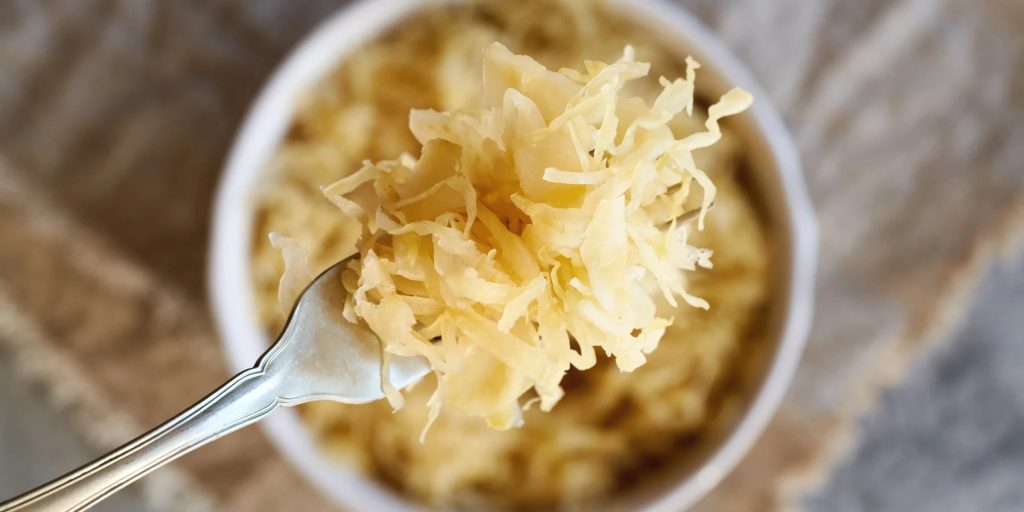We will be closed for the UK bank holiday (26th May), orders placed after 3pm on 23rd May will be dispatched upon our return (27th).
Fermented foods have been given a trendy renaissance in more recent years. This is likely due to the increasing interest in gut health as well as a return to leading chefs reverting to more ancestral ways of cooking. However fermented foods are nothing new at all and feature in all cultures in every part of the world. Think Korean kimchi, miso and kombucha in Japan, sauerkraut from Poland and closer to home live yogurt and cheese just to name a small few. Even chocolate, wine and bread are other examples of foods that many of us eat on a daily basis and don’t even necessarily realise are fermented.
Traditionally fermented foods have played a significant role in our diet, initially used for preservation, our ancestors soon discovered that fermentation brought extra depth of flavour and texture to our food. However, with the introduction of fridges and other preservation methods it meant that we used this technique less and less. Until, that is, it found its way back into popular culture and culture really is the apropos word.
Well, to put it very simply fermentation is the magical transformative process of live microbes. Fermentation is largely an anaerobic process which means that it doesn’t use oxygen and, through various chemical and enzymatic reactions, micro-organisms such as bacteria and yeasts break down sugars and starches into alcohols and acids. These alcohols and acids act as preservatives and also give fermented foods their distinct umami flavour. The process of fermentation also promotes the growth of beneficial bacteria and yeasts as well as bioactive metabolites which we then ingest through the foods themselves.
Ferments can either be based on a specific ‘starter culture’ of microbes to kick-start the process or left to more microbial ‘chance’ in the form of wild fermentation. Culture-based fermented foods typically include traditional cheese, yogurt and kefir whereas lacto-fermented vegetables such as kimchi and sauerkraut are the result of spontaneous microbes that live on the surface of plants and in the air. Depending on the ferment it will have different methods and environments it needs to flourish and then it is simply waiting for the process to unfold.

Whilst we have enjoyed ferments as part of our culinary history it is the science now that is also catching up, which is demonstrating some pretty exciting health benefits too. Indeed, the research around fermented foods and their impact on our health has started to gain more and more traction which really reaffirms what our ancestors knew millennia ago. We now have the more sophisticated techniques of measuring them! In the majority the health associations have largely been linked to gut health as fermented foods provide a source of ‘probiotics’ which are cultured during the fermentation process itself. It is these probiotics that can enhance our own microbiome which links to all of the areas and systems that our gut influences to include immune system health, cognitive health and metabolism.
Fermented foods also often contain more in way of numbers and diversity in terms of beneficial microbes than many of the probiotic supplements on the market as typically the latter tend to circle around the same 12 or so strains. In addition, the microbes in fermented foods are positively alive whereas in many supplements they are freeze-dried. In the case of lacto-fermented vegetables these also contain fibre and polyphenols (special plant chemicals) that stimulate our existing gut microbes to produce post-biotic chemicals such as short-chain fatty acids and neurotransmitters like serotonin. So, there is a double effect of feeding the existing microbiome and stimulating the growth of good bugs as well as the probiotic microbes that pass through the gut and seem to exert a positive transitionary impact. Diversity of plants is also something that we need to focus on to help support our gut health, and in the case of ferments such as kimchi, we could be looking at typically 8 or more types of plant in just one spoonful.
Fermented foods are also higher in both concentration and bioavailability of certain vitamins and minerals including vitamin B12, biotin, folic acid, calcium, magnesium, potassium and zinc. Furthermore, the fermentation process means that proteins are, to varying degrees, ‘pre-digested’ and this extends to proteins such as casein in milk products and gluten in bread which can make them altogether easier to digest and better absorbed.

The only caveat is that if you aren’t used to eating fermented foods you do want to ease into this, and serving sizes for most of them are around a few tablespoons. Going too hard and fast might cause quite a lot of unpleasant gassy side effects. It is also worth adding in that having lots of ferments like kombucha and water kefir can add up to quite a bit of sugar, albeit these drinks contain a lot of other good stuff as mentioned before, but it is something to take note of. Also, not all fermented foods contain live microbes – such is the case with wine, chocolate and bread where either heat or filtration will remove them. Furthermore, if you are buying ferments like the lacto-fermented vegetables try to get unpasteurised so that you can mitigate the heat processing part and reap the probiotic benefits.
However, I would encourage all of you to try and make some ferments at home as not only do we end up making something that tastes exceptional but engaging in fermenting helps us to reconnect with the sources of our food and ultimately our soil. We can visibly and tangibly see the processes that happen in our gut and our body every single day, and this helps us to better associate what happens in the soil happens within us too which is central to the philosophy of ION* . It really is a beautiful demonstration of symbiosis between microbes and ourselves.
REFERENCES
Şanlier N, Gökcen BB, Sezgin AC (2019) ‘Health benefits of fermented foods’ Crit Rev Food Sci Nutr. 2019;59(3):506-527. doi: 10.1080/10408398.2017.1383355. Epub 2017 Oct 20. (Online). Available at https://pubmed.ncbi.nlm.nih.gov/28945458/
Leeuwendaal NK, Stanton C, O’Toole PW, Beresford TP (2022) ‘Fermented Foods, Health and the Gut Microbiome’ Nutrients. 2022 Apr 6;14(7):1527. doi: 10.3390/nu14071527. (Online). Available at https://pubmed.ncbi.nlm.nih.gov/35406140/
Aslam H et al (2018) ‘Fermented foods, the gut and mental health: a mechanistic overview with implications for depression and anxiety’ Nutr Neurosci. 2020 Sep;23(9):659-671. doi: 10.1080/1028415X.2018.1544332. Epub 2018 Nov 11. (Online). Available at https://pubmed.ncbi.nlm.nih.gov/30415609/
Stiemsma LT et al (2020) ‘Does Consumption of Fermented Foods Modify the Human Gut Microbiota?’ J Nutr. 2020 Jul 1;150(7):1680-1692. doi: 10.1093/jn/nxaa077. (Online). Available at https://pubmed.ncbi.nlm.nih.gov/32232406/
Dimidi E, Cox SR, Rossi M, Whelan K (2019) ‘Fermented Foods: Definitions and Characteristics, Impact on the Gut Microbiota and Effects on Gastrointestinal Health and Disease’ Nutrients. 2019 Aug 5;11(8):1806. doi: 10.3390/nu11081806. (Online). Available at https://pubmed.ncbi.nlm.nih.gov/31387262/
Marco ML et al (2017) ‘Health benefits of fermented foods: microbiota and beyond’ Curr Opin Biotechnol. 2017 Apr;44:94-102. doi: 10.1016/j.copbio.2016.11.010. Epub 2016 Dec 18. (Online). Available at https://pubmed.ncbi.nlm.nih.gov/27998788/
Share this article